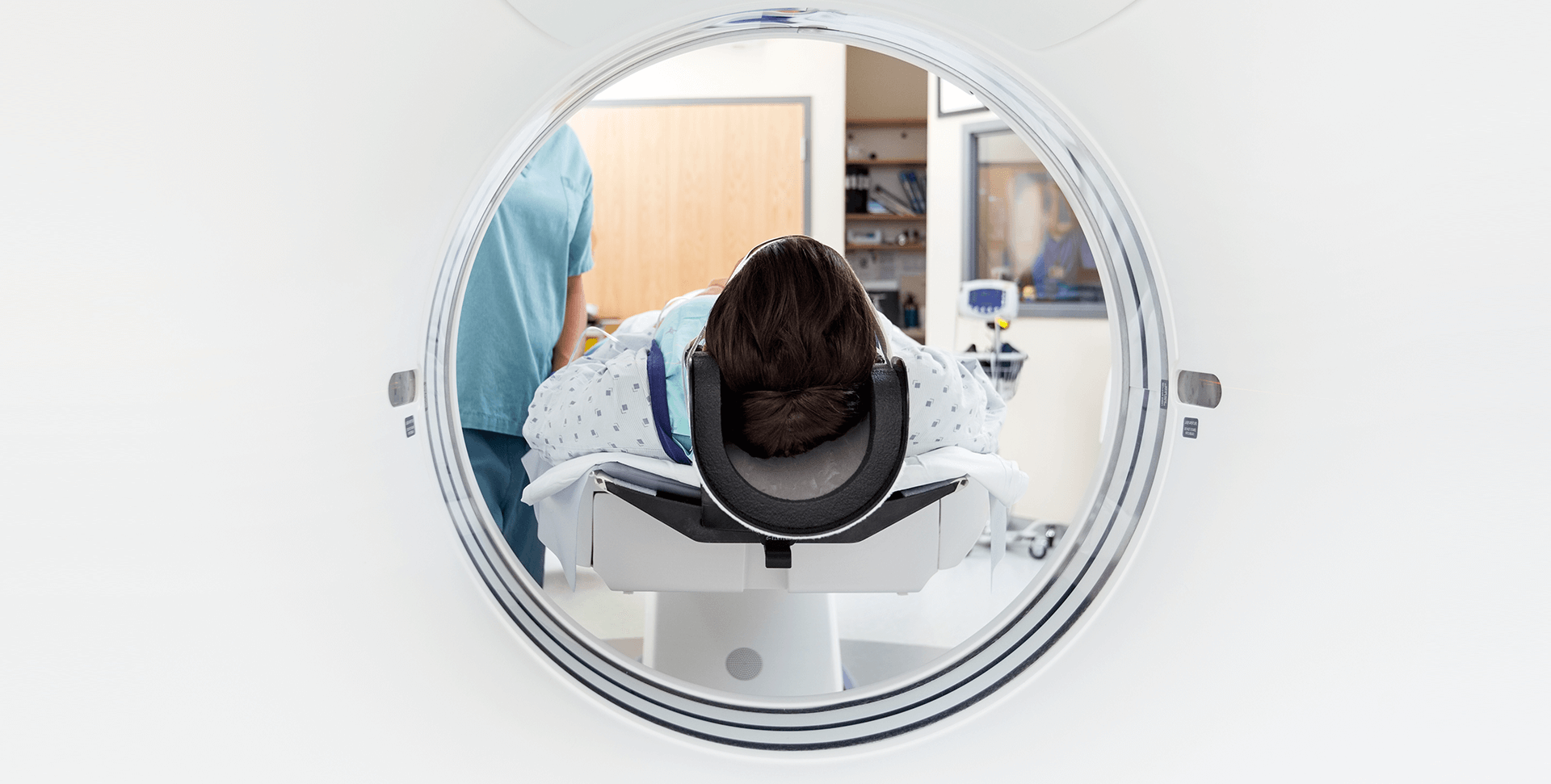WHAT IS MAGNETIC RESONANCE IMAGING (MRI)?
Powerfull - Uses a powerful magnet and radio frequency pulses to produce detailed images of the internal body structures.
- The MRI produces detailed pictures of organs and soft tissue and is the superior imaging choice for brain and spinal cord, Musculoskeletal system for certain conditions of the abdomen and pelvis.
- It does not use ionising radiation.
- Due to the strength of the magnetic field, certain devices such as cardiac pacemakers, automatic internal defibrillators and other medical implanted devices may prohibit you from having an MRI. Please notify the radiographer of any implanted devices in your body before you enter the MRI room.
WHAT TO EXPECT
- The procedure will take between 20 and 60 minutes depending on the type of procedure
- You may be asked to change into a procedure gown for the examination.
- You will be placed on the bed that will move into the MRI tunnel. The tunnel is open on both ends.
- You will be given a button to push should you require the attention of the radiographer during the procedure. The Radiographer will sit outside the MRI room and will be present throughout your scan.
- The machine will make a loud knocking noise while it is scanning. The scan periods vary from 1 minute to 10 minutes at a time. You will be wearing ear plugs, provided by us, to block out the noise.
- You must lie very still while the knocking noise is heard as that is the time the images are being captured.
- You may be given breathing instructions during the scan.
- It is not a painful procedure but maintaining the position may be uncomfortable. We do try and make you as comfortable as possible.
- If your procedure requires contrast, a needle will be placed into a vein through which the contrast will be injected. Please indicate if you have any renal problems prior to receiving the contrast.
- In some procedures a catheter or coil may be required to be placed in your rectum for contrast to be filling your rectum. (MR prostate) The placement of the catheter/coil will be done by a trained nurse or the radiologist and with much discretion as possible.
- The results following your MR examination should be ready within 2 hours of the procedure being completed. Your doctor will discuss the results with you.
- You may resume normally following the procedure. If you received sedation however, you should let someone else drive you home.
HOW TO PREPARE
- You will need a referral note from a specialist for an MRI procedure.
- MRI examinations require authorisation from your medical aid which our Practice will obtain. You remain responsible for any shortfall or non-payment by the medical aid.
- Private patients are expected to pay for the procedure on the day of the procedure.
- Some of the MRI procedures may require an injection for contrast. Please indicate to the radiographer if you have impaired renal function.
- You will be asked to complete a questionnaire relevant to your procedure. Please do so honestly.
- Certain implanted devices may prohibit you from going into the magnetic field. Please notify the radiographer of any implanted devices before you enter the MRI room.
- If you require sedation you should arrange for someone to drive you home after the procedure.
AVAILABLE AT THE
FOLLOWING BRANCHES
Bedford Gardens Hospital
Linksfield Hospital
Mulbarton Hospital
Sunward Park Hospital
Union Hospital


